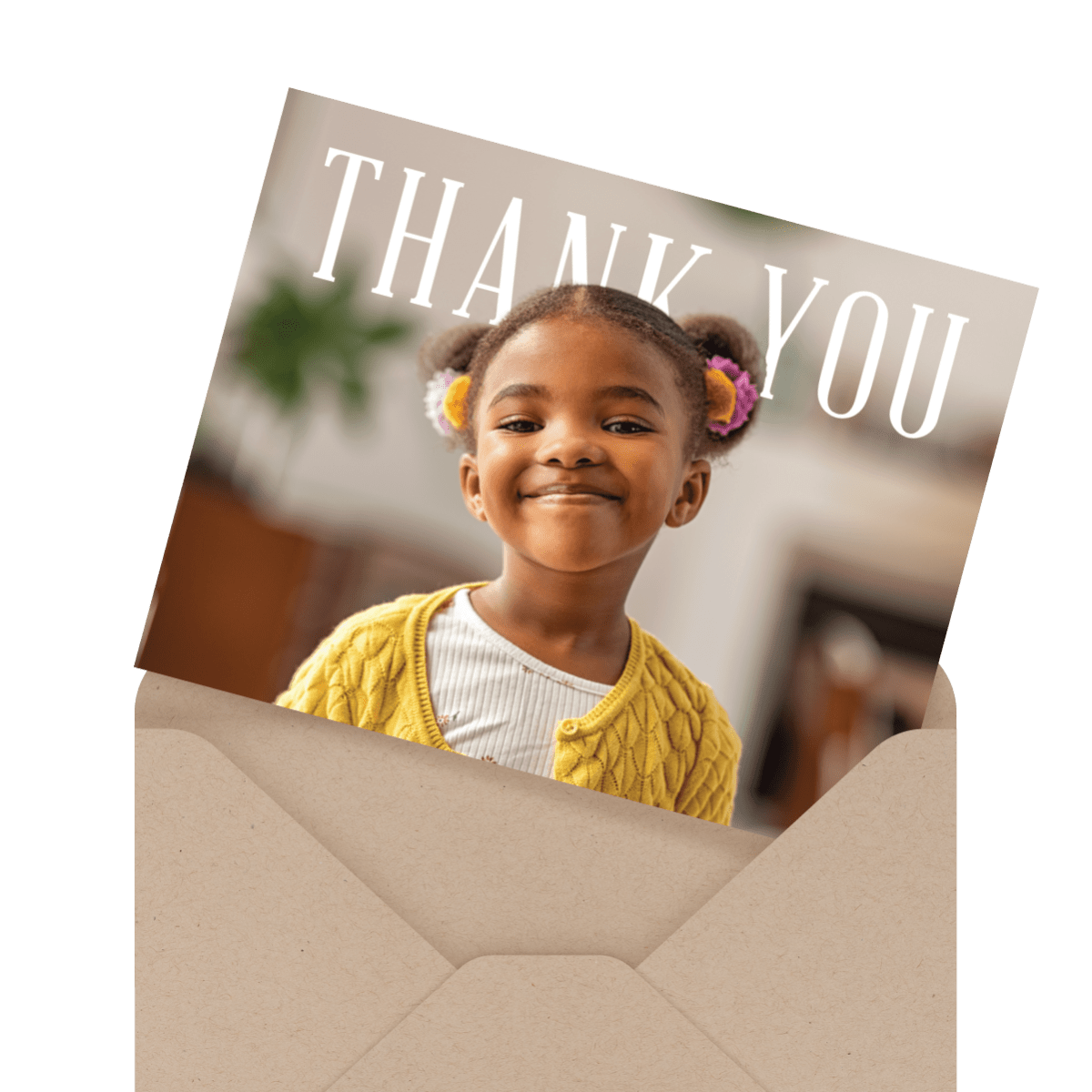One of the most vital lessons we impart on our kids is the importance of expressing gratitude. It's the second magic word (after please, of course), but it's no less important. One of the best ways to teach kids gratitude is to instill a regular thank you card writing practice. That means having kids write thank you cards consistently after a gift is given, a service is provided, or any other instance where a thank you is appropriate. But really, when should we send kids thank you cards?
Good question. And the answer is quite simple: when the adults send thank yous, the kids should too. This means the list is really inexhaustable, but here are some suggestions on when to send kids thank you cards:
- Birthdays
- Holidays/Christmas
- Religious milestones
- Graduations
- End of the year for teachers
- Neighborly help
- Other
Birthday kids thank you cards
If you receive a gift, you say thank you. It's a basic concept most adults abide by and it should be no different for kids. Writing birthday thank you cards is a no brainer and is a great start to getting your kids to write consistent thank you cards.
Holiday/Christmas, Religious milestones, and graduations
Other occasions where gifts are the norm, especially for children, include the holidays, religious milestones, and graduations. When Santa drops off all those gifts, make sure the kids write their thank you cards. That may mean they're writing to Santa. The idea is to instill a practice of expressing gratitude whenever a gift is received.
End of the year for teachers
Teachers are superheroes (especially after 2020). If there was ever a reason to say thank you, this would be it. Having kids write yearly end of the year teacher thank you cards is just one simple way to show teachers how much they matter and help kids practice gratitude.
Neighborly help
If a neighbor went out of their way to help with say, a science project or allowing the kids to use their swimming pool or treating them to some lemonade (whatever it is that neighbors sometimes do), writing kids thank you cards will help them remember to always show gratitude. These kids thank you cards don't have to be over-the-top, but a simple 'thanks for being a great neighbor' would do the trick.
Other
And on that note, just about any time someone goes out of their way to help with something or other is a stellar opportunity to have kids send thank you cards. Did grandma and grandpa do something extra-special? Perhaps grandma baked a pie just for the kids? Why not take the opportunitiy to write grandma a thank you note for the pie and all the other amazing things she does for the family?
Not only is writing kids thank you cards going to help get your kids ready to be the greatest thank-you-card-writing adults (in the world), but it will also help them to learn gratitude. Studies have shown practicing gratitude can lead to happier lives. So really you're helping your kids live their happiest, best lives. Who knew kids thank you cards had such powers?!

